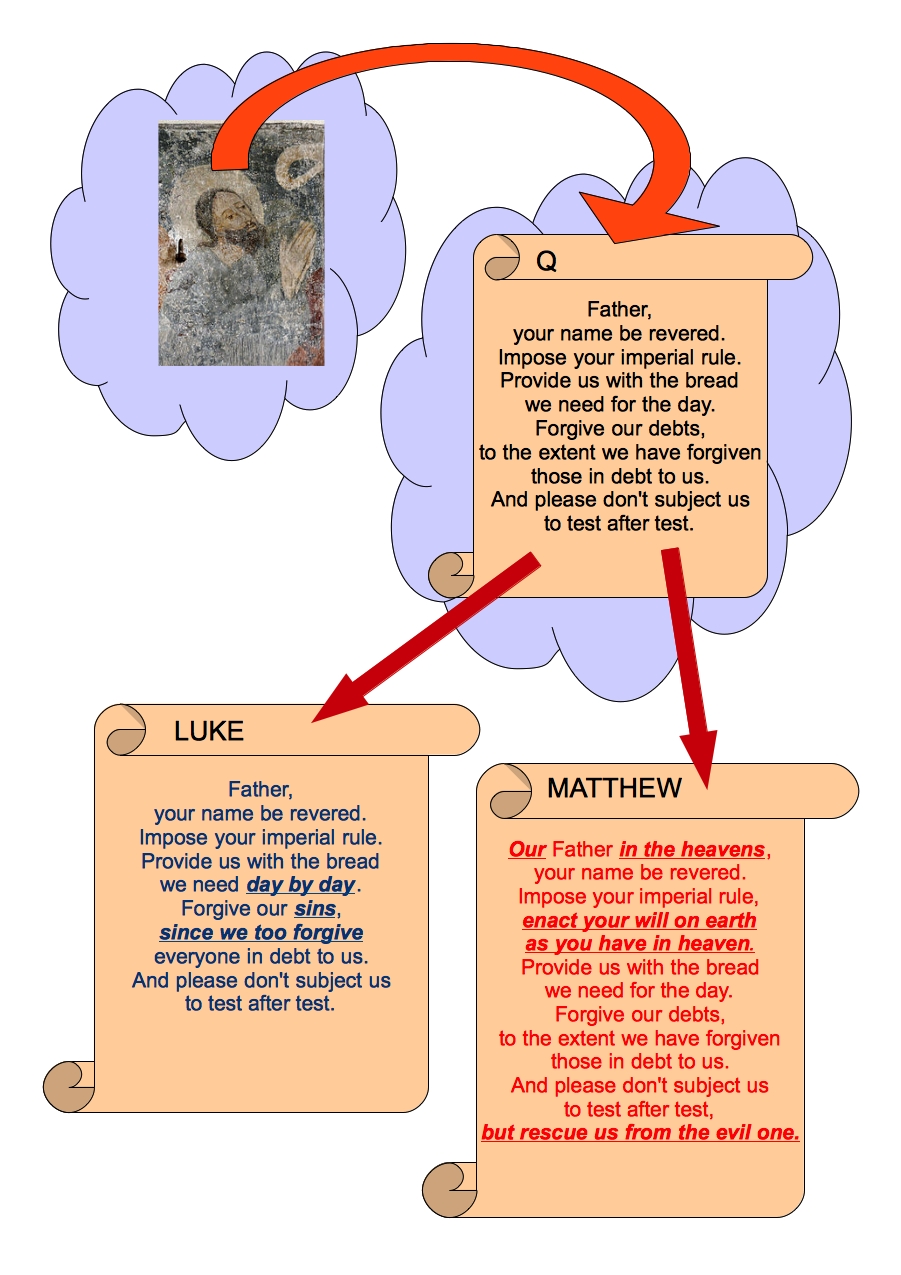I compare here two explanations for the origin of the Lord’s Prayer as we read it today in the Gospels of Matthew (6:9-13) and Luke (11:2-4).
There are in fact more than two explanations to be found in the scholarly literature but they can be conveniently divided into two: those that trace the prayer back to Jesus by means of various oral traditions and/or the now lost Q document or different editions/versions of Q on the one hand and those that explain the prayer as primarily the creation of the author of the Gospel of Matthew on the other. (If we dispense with the Q channel for the Lord’s Prayer and rely upon varied and pervasive traditions that Jesus tended to pray somewhat along these lines (that bypassed Q) then we raise the question of why the author of Mark’s gospel — and John’s — appeared to be unaware of it.)
For the first (that the prayer derives from Jesus, most likely as a collation of common themes in prayers he prayed over many different times) I use the explanations published by Funk, Hoover and the Jesus Seminar in The Five Gospels. Though not agreed upon by all scholars in the details I think it does give a fair introduction to the general idea of how our canonical versions may have been adapted from the original teachings of Jesus. As for the second explanation (that the prayer was fundamentally the creative composition by one we shall call “Matthew”) I rely upon Michael Goulder’s ‘The Composition of the Lord’s Prayer’ (JTS 14 [1963], pp. 32-45)*.
Goulder also conceded that the original prayer came from Jesus but not as a direct instruction; he suggested that our Lord’s Prayer evolved from Jesus’ Gethsemane prayer for deliverance from the crucifixion. We will see that the details of his argument leave very little of the prayer that was not the creative work of an evangelist.
The following diagram shows what can reasonably be divined (an oxymoron appropriate to theological discussions) as the prayer from which both Matthew and Luke adapted their respective versions. Note the following:
- Luke’s “day by day” is considered a departure from what Jesus would probably have originally said. Matthew got it right and Luke started to express worries about the day after this day and the next. This argument is based on our “knowing” that Jesus himself lived with complete trust in God for the needs of the present day (only).
- We “know” Jesus would have been directly mixing with people who faced dire poverty and were at the mercy of those who had money. It follows that Jesus originally prayed about real money debts. Matthew got this right, keeping to the original prayer as he would have found it, while Luke changed it to spiritual debts (sins).
- On the other hand, Luke is generally said to have preserved the original saying of Jesus (as recorded in Q) that hews to the world of material possessions (e.g. Blessed are the poor) while Matthew is the one who changes the original by spiritualising it (e.g. Blessed are the poor in spirit.) We need to keep in mind that we are dealing with the arguments of theologians and not historians or logicians.)
- Matthew liked a bit of eloquent rhetoric so he added additional high-sounding phrases and clauses to the original. The last line is a typically Matthean antithetical addition (i. don’t do this -[but]- ii. do do that)
Here is an alternative: Continue reading “Two Accounts of the Origin of the Lord’s Prayer”


